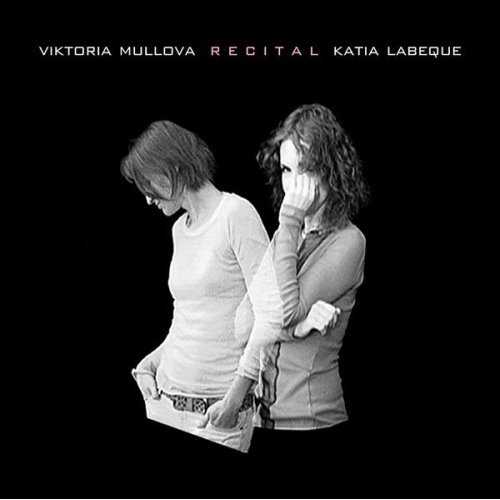
Performer: Katia Labèque, Viktoria Mullova
Composer: Igor Stravinsky, Franz Schubert, Maurice Ravel, Clara Wieck Schumann
Audio CD
SPARS Code: DDD
Number of Discs: 1
Format: FLAC (image+cue)
Label: Onyx Classics
Size: 248 MB
Recovery: +3%
Scan: yes
01. Stravinsky – Suite Italienne (after Pulcinella): Introduction: Allegro Moderato
02. Stravinsky – Suite Italienne (after Pulcinella): Serenata: Larghetto
03. Stravinsky – Suite Italienne (after Pulcinella): Tarantella: Vivace
04. Stravinsky – Suite Italienne (after Pulcinella): Gavotte con due variazioni – Allegretto – Allegretto piu tosto moderato
05. Stravinsky – Suite Italienne (after Pulcinella): Scherzino: Presto alla breve
06. Stravinsky – Suite Italienne (after Pulcinella): Minuetto – Finale
07. Schubert – Fantasie for violin and piano D934: I Andante Molto
08. Schubert – Fantasie for violin and piano D934: II Allegretto
09. Schubert – Fantasie for violin and piano D934: III Andantino
10. Schubert – Fantasie for violin and piano D934: IV Tempo primo – Allegro Vivace – Allegretto – Presto
11. Ravel – Violin Sonata (1927): I Allegretto
12. Ravel – Violin Sonata (1927): II Blues: Moderato
13. Ravel – Violin Sonata (1927): III Perpetuum Mobile: Allegro
14. Clara Schumann – Romanze for violin and piano, op 22/1: No 1 in Db Major (ré bémol majeur. Ds-Dur)
The Schubert Fantasy is the stand-out in this rather short, off-kilter recital
This impressive CD follows up on several similar recitals made for Philips before Mullova switched to Onyx. As an artist-driven label, Onyx has attracted star talent and offers them good sound as well as greater liberty over what they want to play. I’m not sure that Mullova puts her best foot forward in Stravinsky’s witty Suite Italienne, adapted from Pulcinella. When set for cello, the transcription has a droll mournfulness missing form the violin version. Also, Mullova’s talent, deep as it is, doesn’t extend to humor, and tis is a rather plain-faced reading, not to mention that the music itself is slight.
The next work, however, is an undoubted masterpiece, and she is quite impressive. Schubert’s late Fantasy in CD doesn’t call upon any Paganini-like fireworks; it’s often so simple that it can be played by a reasonably adept student. But its mood is enigmatic and requires all the subtlety a musician can bring to it. Especially lovely is the third movement, the longest, which is a set of variations on the haunting song “Sei mir gegrusst,” expressive of joy and melancholy finely merging. Of the three versions that I know (the other two being Gideon Kremer’s and Isaac Stern’s), this one is the most mysterious and nuanced. Mullova’s partner, Katia Labque of the duo piano sisters, plays with surprising finesse. The Fantasy seems to arrive from another world, with the violin keening a long melody while the piano part ripples with rewnikia. The simplicity of the writing calls forth from Mullova an inward-looking reading that I found captivating.
Very early in her career Mullova recorded the Ravel Sonata in G, which must be a favorite. It’s a piquant work that hides a soul beneath apparent frivolity, as was Ravel’s wont. The first movement is like a shimmering moto perpetuo with a second theme close to Debussy. the second movement, marked ‘Blues,’ begins with doublte-stopped pizzicatos and moves into a Stephane Grappelli-like jazz mode out of a cabaret; the piano imitates a tom-tom drum but soon finds its own angular jazz dance. The third movement is actually marked Perpetuum mobile and sounds like Flight of the Bumblebee taking a detour into Paris. The program ends with a two-minute Romanze by Clara Schumann that is a Rosetti lyric set to music; more a page from a remembrance book than anything substantial.
At just over 52 min., this isn’t a generous offering, and the only two works I cared about were the Schubert and the Ravel. Even so, Mullova’s is effortless in its accomplished artistry.



